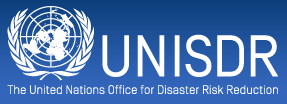The First Session of the Preparatory Committee (PrepCom1) of the Third UN World Conference on Disaster Risk Reduction (WCDRR) met to review the organizational and substantive preparations for the Conference, approve its programme of work, and propose its rules of procedure.
Over 600 government representatives and experts attended the conference, with broadly converging views on how to address threats posed by disasters and climate change.
 15 July 2014: The First Session of the Preparatory Committee (PrepCom1) of the Third UN World Conference on Disaster Risk Reduction (WCDRR) met to review the organizational and substantive preparations for the Conference, approve its programme of work, and propose its rules of procedure. Over 600 government representatives and experts attended the conference, with broadly converging views on how to address threats posed by disasters and climate change.
15 July 2014: The First Session of the Preparatory Committee (PrepCom1) of the Third UN World Conference on Disaster Risk Reduction (WCDRR) met to review the organizational and substantive preparations for the Conference, approve its programme of work, and propose its rules of procedure. Over 600 government representatives and experts attended the conference, with broadly converging views on how to address threats posed by disasters and climate change.
Margareta Wahlström, the Secretary-General’s Special Representative for DRR, said she was encouraged by the substantive discussions, the clear guidance given, and the converging inputs on what the post-2015 framework should contain, recognizing that diverging views remain in some areas. PrepCom Co-Chair Thani Thongphakdi, Thailand, called for the post-2015 framework to be “relevant to everyday concerns, such as access to food, water, a place to live, education and good health.”
In building on the Hyogo Framework for Action (HFA), participants generally agreed for an increased focus on: preventing the creation of new risk while continuing to reduce existing risk; reducing vulnerability and exposure; engaging all of society and promoting equality and inclusion; and developing more effective financing mechanisms in the public and private sectors for managing risk. The PrepCom also pointed to strong convergence on the need to, inter alia: create synergies; strengthen national governance and coordination to manage risk; engage all State institutions; create synergies with the post-2015 development framework and the new climate deal to ensure coherence in policies and approaches; empower local communities and authorities in managing disaster risk; strengthen regional cooperation and address transboundary risk; monitor progress more carefully to enable any necessary corrective actions; and more clearly defining responsibilities across public and private actors.
Various civil society representatives voiced their concerns and recommendations, calling for, inter alia: integrating a gender perspective in the post-2015 framework, and ensuring that women are involved in DRR decision-making and planning processes; involving young people, particularly because of their unique abilities to network, self-organize and effect change using limited resources; setting up an international science advisory DRR mechanism; enhancing policy coherence with poverty alleviation, climate change and sustainable development frameworks; strengthening community resilience; enhancing accountability; engaging civil society in the drafting process leading up to the WCDRR; establishing appropriate safeguard systems and strong social protection systems; agreeing on indicators and risk information for improved decision making to strengthen local resilience; and establishing a robust monitoring regime.
Private sector representatives called for, inter alia: measuring progress through global standards for risk auditing; establishing public-private partnerships (PPPs) based on trust and regulatory clarity; promoting tax incentives and investment drivers that promote clear, well-defined DRM standards; and seeking incentives for business continuity management, which cover the supply chain, involve the community, and consider small and medium enterprises (SMEs).
The preparatory process began in 2012. Since then, over 150 consultations have been held worldwide. PrepCom1 was held in Geneva, Switzerland, from 14-15 July 2014. PrepCom2 will convene from 17-18 November 2014, to consider the zero draft text of the post-2015 framework. [UNISDR Press Release, 14 July 2014] [Statement of Margareta Wahlström] [UNISDR Press Release on Civil Society] [UNISDR Press Release, 15 July 2014]